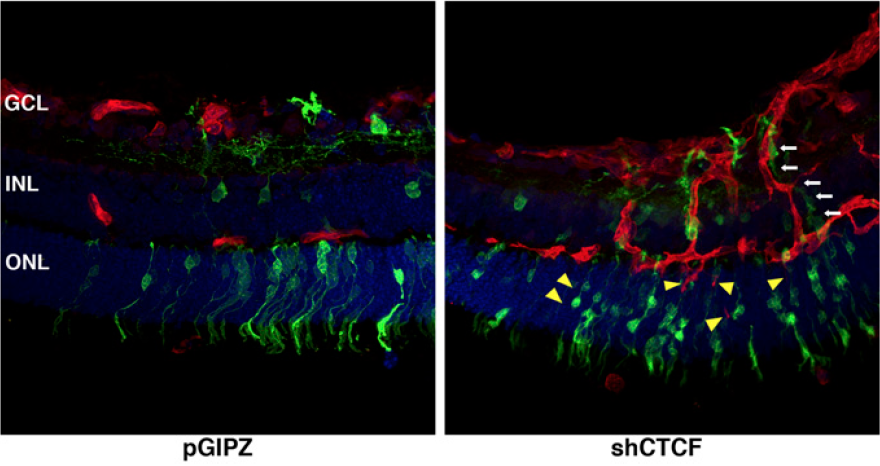 My caption 😄
My caption 😄
Restraint of angiogenesis by zinc finger transcription factor CTCF-dependent chromatin insulation
Abstract
Angiogenesis is meticulously controlled by a fine balance between positive and negative regulatory activities. Vascular endothelial growth factor (VEGF) is a predominant angiogenic factor and its dosage is precisely regulated during normal vascular formation. In cancer, VEGF is commonly overproduced, resulting in abnormal neovascularization. VEGF is induced in response to various stimuli including hypoxia; however, very little is known about the mechanisms that confine its induction to ensure proper angiogenesis. Chromatin insulation is a key transcription mechanism that prevents promiscuous gene activation by interfering with the action of enhancers. Here we show that the chromatin insulator-binding factor CTCF binds to the proximal promoter of VEGF. Consistent with the enhancer-blocking mode of chromatin insulators, CTCF has little effect on basal expression of VEGF but specifically affects its activation by enhancers. CTCF knockdown cells are sensitized for induction of VEGF and exhibit elevated proangiogenic potential. Cancer-derived CTCF missense mutants are mostly defective in blocking enhancers at the VEGF locus. Moreover, during mouse retinal development, depletion of CTCF causes excess angiogenesis. Therefore, CTCF-mediated chromatin insulation acts as a crucial safeguard against hyperactivation of angiogenesis.